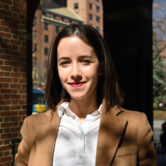
Jacqueline Gallant
Supervising Attorney
The Earth Rights Research & Action

Jacqueline Gallant
Supervising Attorney
The Earth Rights Research & Action
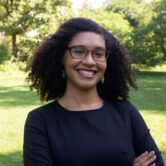
Gabrielle Apollon
Director, Haitian Immigrant Rights Project
Global Justice Clinic
Gabrielle Apollon directs Rights without Borders: Haitian Immigrant Rights part of the Global Justice Clinic, through which she is building a hemisphere-wide coalition of Haitian activists, lawyers and allies, collaborating to combat the anti-Black racism, exclusion and cyclical displacement Haitians have faced as they’ve migrated throughout the Western Hemisphere.
She is also co-leading the Clinic’s work on climate migration, documenting and challenging anti-Blackness as it relates to Haitians’ experiences of climate harms, in Haiti as well as in transit and destination countries. Gabrielle previously served as Managing Attorney at The Door: A Center for Alternatives, where she represented young people in immigration and family law matters. While at The Door, Gabrielle expanded services for Francophone immigrants and became a New York Community Trust Leadership Fellow. A 2015 graduate of NYU School of Law, Gabrielle was an AnBryce Scholar and served as a student advocate in the Global Justice and Children’s Rights Clinics. As a student, Gabrielle earned a Ford Foundation Public Interest Law Fellowship to work with Conectas in Brazil in 2013, documenting human rights violations of Haitian migrants en route to Brazil.
Prior to law school, Gabrielle worked at the United Nations Office of the Special Envoy to Haiti as a research specialist. She holds a Bachelor of Arts and a Master of International Affairs from Columbia University, where she was awarded the J.W. Saxe Memorial Award for Public Service and Harry J. Carman Fellowship. While studying political science and international development, Gabrielle interned with the Council on Foreign Relations and Haiti’s presidential commission, Groupe de Travail sur l’Education et la Formation (GTEF). Gabrielle speaks French and Haitian Creole. She serves as the Vice President of the Board of Directors of St. Hope Leadership Academy.
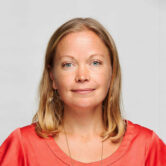
Ellie Happel
Interim Director, Global Justice Clinic
Co-Director, Haiti Justice and International Accountability
Co-Director, Caribbean Climate Justice Initiative
Ellie co-directs the Global Justice Clinic projects Haiti Justice and International Accountability and the Caribbean Climate Justice Initiative.
Both projects partner with social movements and communities in Haiti and the Caribbean to defend their environmental, economic, social and cultural rights; to prevent rights violations, particularly by international actors; and to support efforts to build community power in the face of extractive development models and the global climate crisis. Ellie also co-teaches the Global Justice Clinic Seminar.
Ellie lived and worked in Haiti between 2011 and 2017, first on cases of forced eviction in the internally displaced people (IDP) camps in Port-au-Prince, and then to develop the Global Justice Clinic’s partnership with Kolektif Jistis Min (Justice Mining Collective), a coalition of Haitian social movement organizations that came together to monitor Haiti’s nascent gold mining industry.
Ellie is a 2011 graduate of NYU School of Law where she was a Root Tilden Kern scholar. She holds a B.A. magna cum laude in Metropolitan Studies from New York University. Ellie is fluent in Spanish and Haitian Creole.
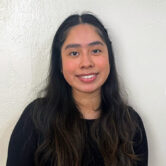
Diana Rangel
Office Assistant for Programs

Carlos Andrés Baquero-Díaz
Research Director of the NYU TERRA Program
The Earth Rights Research & Action

Brigitta Call
Finances, Operations and Events Coordinator
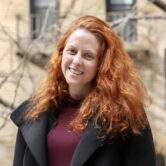
Brianne Cuffe
Faculty Assistant, Philip Alston
Brianne Cuffe is the faculty Assistant for Philip Alston. She holds a BA in Biology from Boston University, but her passion for public health did not develop until working at MCPHS University as Administrative Coordinator for the School of Arts and Sciences. Working closely with a diverse and interdisciplinary group of faculty, she coordinated events and programming, included Community Action Poverty Simulations, for students and faculty.
Following Missouri Community Action Network’s model, participants experience a sample of the hardships families living on the brink of poverty encounter and learn to recognize with a holistic perspective the various barriers their future patients might encounter. Brianne is also an “environmental nut.” She volunteered with Boston Harbor Islands’ Stewardship Saturdays and currently volunteers with NYC Park’s stewardship team removing invasive species, planting trees, and collecting data for citizen science projects.
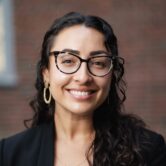
Ashley Otilia Nemeth
Supervising Attorney
The Earth Rights Research & Action; FORGE
The Center offers opportunities for scholars and practitioners to spend up to one year in residence working on projects related to our thematic areas and collaborating with staff members as well as with other visiting practitioners and scholars.
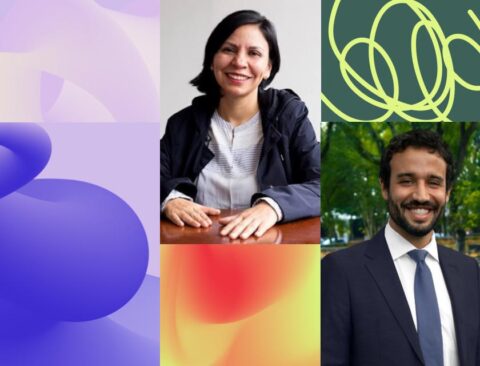
2024-2025
Patricia Tobón Yagarí
Patricia is a distinguished practitioner in residence. She is an Indigenous lawyer of the Embera people of Colombia & former General Director of the Unit for the Attention and Integral Reparation of Victims in Colombia.
Lucas Cravo de Oliveira
Lucas Cravo is a scholar in residence awarded the Doctoral Dissertation Research Award program of the Fulbright Commission Brazil. He is a PhD candidate in Law at the University of Brasília (2022–present) and holds a Master’s degree in Law from the University of Brasília (2018–2020), with a technical visit period at Flinders University, funded by the CAPES Academic Excellence Program.
Distinguished Practitioners in Residence
Participants in this program are practitioners from around the world who have made outstanding contributions to human rights and global justice as advocates, policy makers, social movement leaders, international agency officers, non-profit leaders, journalists and other relevant roles.
Please note that the Center is not currently accepting applications for this program.
Global Fellows at NYU School of Law
The Center accepts up to three fellows per year through the NYU Law Global Fellows Program. Fellows interested in applying for this opportunity should refer to the program’s guidelines, funding deadlines, and application process and indicate their interest in being housed at the Center.
Each year, the Center selects a cohort of incoming NYU Law LLM students to take part in the Transitional Justice Leadership Program.
Developed in consultation with prominent figures in the transitional justice field, the program provides an opportunity for NYU Law LLM students to engage through coursework, scholarship, and internships with the Center’s Prevention Project which:
This program offered me an unmatched opportunity to develop my expertise in this vibrant field and to move my career toward the next stages.
Jorge Carlos Peniche Baqueiro, Transitional Justice Scholar 2016-2017
Senior Fellow and Professor de Greiff who served as UN Special Rapporteur on the promotion of truth, justice, reparation and guarantees of non-recurrence (May 2012-May 2018) leads the Transitional Justice Program and teaches the associated course.
Students not selected for the program may still register for the course through the normal registration process; however, as with all NYU Law courses, enrollment for those outside the program is not guaranteed.
Following the orientation session, scholars will take leadership in organizing, leading and hosting monthly meetings at the Center. These will take the form of discussions with experts and writing workshops, as well as other activities.
Scholarship is vital to preparing students for careers in transitional justice. Scholars are expected to develop original works of legal scholarship to submit to the annual Emerging Scholars Conference, a forum that provides students with the unique opportunity to receive detailed feedback from experts and peers in order to prepare work of publishable quality.
In addition to other information, applicants are required to submit the following materials:
Created by Matchbox Creative
New York University School of Law | Center of Human Rights and Global Justice | Accessibility | All rights reserved. © 2024